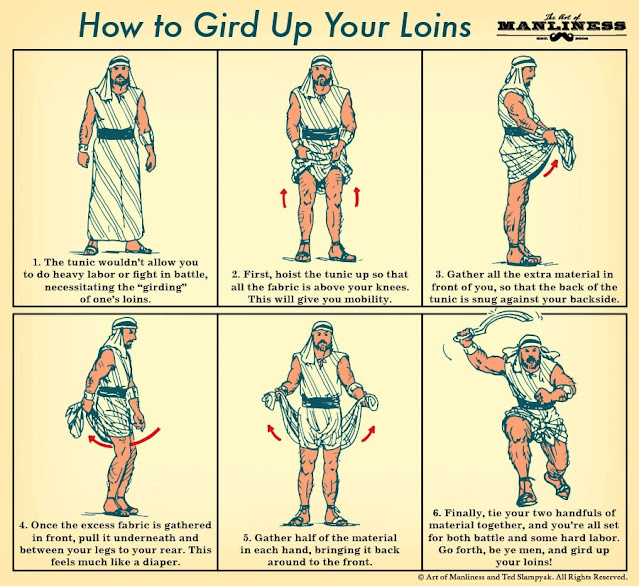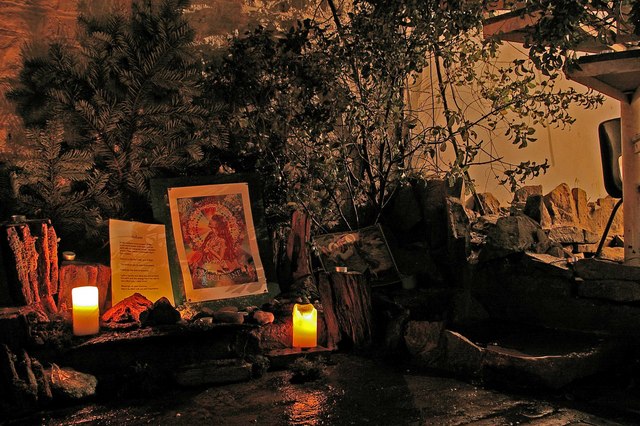

On a face examination one might assume when considering humanism, individualism and post-modernism that one is examining nearly the same thing, however there are unique distinctions between each of these philosophies. They are however in my view, at least flowers growing from the same tree, naturalism, bubbling up from the soil of a purposeless universe careening toward infinite darkness. We will examine the dynamics between these worldviews, how they have affected society in the west, and how these worldviews express themselves today.
Humanism appears to me to be an attempt to return to the certainties of modernism. It also takes some thought from existentialism, in attempting to claim the value of humanity as something found in self referencing. Humanism looks to science, art, and morality to define existence and the person. The individual is very important in humanism. Humanism when it first came about was an attempt to find certainty, morality, justice, flourishing, optimism, and hope without the need for a God. It had positive and negative effects on society. But humanism lacks a logical consistency for morality, truth, and justice. The goal was human flourishing through reason and science, but what flourishing could arise from a universe without meaning? Once God was ejected from the equation, nothing could fill that gap, which led to other worldviews. Next, we consider a worldview very similar to humanism, individualism.
Individualism is very common in western thought. Individualism is the idea that the individual has a right to personal liberty and justice in law. The person has free will and the right to make choices for themselves apart from oppressive groups. Individualism saw the person as the hope, as the one who could pull themselves up by their own bootstraps and achieve anything they put their mind to. Individualism valued hard work and freedom of thought. It reacted against communism and socialism and group-centered ideas even in religion by placing the sovereignty of the individual above any group, ideology, or religious perspective. One of the most well-known proponents would be Ayn Rand, though she molded many of the ideas of individualism with other philosophies like humanism which she called “objectivism.” Individualism, similar to humanism attempts to find human meaning, truth, justice, morality, flourishing, and future by referencing back toward the self, the individual, much like existentialism, but fails to find any logically consistent footing for meaning or value in a purposeless universe. Each of these two worldviews must borrow basic constructs from the theistic universe, like purpose, human value, objective morality, ontological hope, and a future worth living for beyond the grave. Next, we consider post-modernism.
Post-modernism despairs of any universal standard for justice (Sire, 2020, p. 219). It views truth as relative, there is no truth essentially, truth is just a construct of communities making use of language (Sire, 2020, p. 219). But when a post-modernist makes use of language, the goal is often deconstruction, to pull it apart and prove it to be without meaning (Sire, 2020, p. 219). Any metanarratives, or constructs of thoughts to define the meaning of life, history, and humanity are viewed as veiled power plays. Any metanarrative should generally be viewed as fundamentally oppressive. Morality is based on social utility, but the society is essentially free to define what a positive utility might be, and base it on just about anything (Sire, 2020, p. 217). One could say post-modernism is pragmatic in regard to morality and societal functioning, at least within the limited lense of what post-modernism allows. Post-modernist you might say is one of the most honest out workings of naturalism. If all is reduceable to the physical and biological, if there is no God, and no spiritual world, and if the universe is a giant accident, then post-modernism is probably the best description of that universe.
Once having examined all three of these worldviews, humanism, individualism and post-modernism, along with naturalism, nihilism, and existentialism, I must admit, I find myself believing I am dealing with a room of pathologicals in some asylum who are desperately attempting with breathless fury, and in endless writing of pages by the thousands, playing philosophical and ideological words game, desperately attempting to find some sort of meaning or purpose or morality in a fictional universe they’ve created and painted on the walls of the sanitarium, where there is no God. And as they sit around discussing the worldviews that flow from this delusional assumption of an accidental universe, they are driven increasingly mad as they realize the madness that must flow from this model of a purposeless universe. But for some reason, they must refuse the God hypothesis, so they sit around crafting new worldviews, and worldviews out of those worldviews that become increasingly desperate, miserable, empty, and pointless, until they reach post-modernism, or nihilism, and realize, this purposeless universe, does indeed leave us without purpose, and now we are doomed. And as they see the false worldviews they’ve created destroying society in their asylum, they refuse to the very end to consider the fact that perhaps if they would dare believe the universe does have meaning, found in a personal God, suddenly, all their problems of meaninglessness, amorality, and dark despair would be solved in a moment, because at last, they would see beyond the walls of their asylum to the universe as it actually is: directed by a loving God of justice.
So, how have these ideologies effected the development of society in the west? Well, I think Frederick Nietzsche said it well in his parable of the madman: (1882)
“What festivals of atonement, what sacred games shall we have to invent? Is not the greatness of this deed too great for us? Must we ourselves not become gods simply to appear worthy of it?”
These ideologies of humanism, individualism, and post-modernism require us to deify man. Man must become the measure, the judge, the creator, the destroyer, and the perfecter of all things. Nothing short will do for these ideologies, to piece themselves together. These worldviews grew out of the enlightenment, though some preceded it in various ways, it was all codified in the enlightenment. They are all connected to the American revolution as well in various ways. They are connected deeply with Darwin’s Origin of Species. But at their roots they all draw from the statement made by the serpent in Genesis: “Did God really say…?” (Gen 3:1) and again “You will not certainly die,” the serpent said to the woman. “For God knows that when you eat from it your eyes will be opened, and you will be like God, knowing good and evil” (Gen 3:4-5). The best way for Satan, the serpent, in his work in the world today, to lead man astray is to convince man that there is no god. And once found in that universe, man goes quite mad, just like Nietzsche’s madman, running from here to there, demanding to know how God had been killed. The simple answer was, God had not been killed, and he was indeed quite mad. But not crazy. No. He was not crazy. He was angry. He was angry with God. Angry with God for making him. Angry with God for withholding the fruit of the forbidden tree, and that anger had manifested in the way an angry child reacts to the dad he despises: You no longer exist. And I shall go do whatever I please. That is what is really going on here. And the effects on society over the ages have been unsurprisingly quite destructive.
So then, how does this bizarre conjugation of worldviews express itself in our society today? As far as humanism is concerned, you can see it play out in the entire course of a human’s life in the United States. The goal is personal peace and affluence. The goal is human flourishing, which is the goal of humanism. What makes up the track of an average human’s life? Play as a kid. Attend public education and learn the various disciplines of human life, science, English, math, and history. Develop relationships. Connect with family. After high school attend college or trade school, then marry and find a good job. Have children. Influence society with your values. Gain wealth and prestige. Show the world you matter. Eventually retire. Die surrounded by your children. What is missing? God is missing. Religious faith is missing. Morality is missing. Truth is missing. But this is the base mindset of most Americans in the country from what I can tell. Knowledge, Relationships, Wealth, Family, all equate to human flourishing, but they must become capitalized, they must become more than what they are. But they can’t ever be the base meaning of life. Yet in humanism that is how they are treated. Sadly, we live humanism every day and most of us don’t even realize it. Many in our churches though claiming belief in Christ, actually practically live out a humanism worldview.
Individualism’s present-day impact is also extremely far reaching, and hard to notice unless we’re looking directly at it. It’s similar with humanism as we saw, we don’t even realize we’re doing it, because we’ve been indoctrinated into it, it’s so endemic to society. Though we do have the base family structure in the United States, the country is wildly individualistic, and becoming more so over time. Even the family loyalties and structures found in the 70s, 80s, and 90s, really no longer exist in the present day. Every decision a person makes after leaving the home is based on individual preference from the products they purchase to the person they choose to date or marry. Within capitalism and democratic republics we see a lot of the benefits of individualism, free choice, small businesses, varieties to choose from, individual freedom and so on, but we also see the negatives in the loneliness of technological isolation, the disconnect and separation from family as persons move further and further apart, and the lack of unifying values that hold a society together.
Finally we see the effects of post-modernism show themselves in areas like art, philosophy, politics, gender, government, and lifestyle. If art is just personal preference, if it has no reference then why not just smear mud on a canvas and call it art? If everything is relative, and truth doesn’t exist, why not redefine society to fit our personal desires? Why not get married and divorced ten times if commitments don’t matter and we base things on how we feel in the moment? Why not attempt to destroy our political opponents if their perspective is based on an oppressive metanarrative? Why not add new genders, and more every day, why can’t a man become a woman and a woman become a man? Why can’t two men get married? Why can’t two women get married? Why can’t five women marry one man? Or five men marry one woman? Or in the future, why not allow a child to be in a sexual relationship with an adult if both parties consent? And we see the increasing immorality of the society, the crime, the hatred, the sexual immorality, the gambling, the drug use, the human trafficking, school shootings, and all these infinitely multiplying societal ills, but the question must again be asked: If man is the measure, all truth is relative, and personal preference the only moral guide, why not engage in all this and more? That is the impact that these ideologies have on modern society, and I’m certain we’ve only seen the beginning. The question may soon become: How long can a society survive when based on infinitely multiplying broken worldviews and ideologies? That is the question. And the only answer I can think of is:
Only Jesus Christ of Nazareth re-introduced to a broken world, through the hands and feet of His church, can turn this ship around, and win a lost world to a glorious future hope, a future hope so mysterious, glorious, and wonderful that none can truly fathom it.
So, in conclusion, essentially, I would equate humanism, individualism, and post-modernism as three men in a mental hospital, desperately attempting to make sense of a world without God, a world and universe that does not exist. So, they go increasingly mad, destroying the mental hospital (our world) with their mad ideologies, each of them increasingly incoherent, cynical, and apocalyptically bankrupt. Jesus Christ is the helpful psychologist, pleading with these three men to embrace the simple truth that God is real. This truth drives them mad, so they climb into cardboard boxes in which they paint on the walls “nothing matters” and “empty void” as Jesus pleads with them from the other side of their boxes to receive his grace, love, and forgiveness, reaching his loving hand within their boxes, which they swat away with terror. Will they ever climb from their boxes and humbly receive Christ, and see the universe as it really is? Will they ever be free from beyond the mental hospital walls? Only time will tell. But, if they do indeed reject this help, after death, they may yet find the universe they were always looking for, where nothing matters, and there is no future… that place being hell.
References
Geisler, N. L. (1983). Is man the measure?: An evaluation of contemporary humanism. Baker Book House.
Kelley, D. (2010, June 14). What is objectivism?, the Atlas Society: Ayn Rand, objectivism, Atlas shrugged. The Atlas Society | Ayn Rand, Objectivism, Atlas Shrugged. Retrieved May 29, 2022, from https://www.atlassociety.org/post/what-is-objectivism
Sire, J. W. (2020). The universe next door: A basic worldview catalog (Sixth Edition). IVP Academic, an imprint of InterVarsity Press.
















